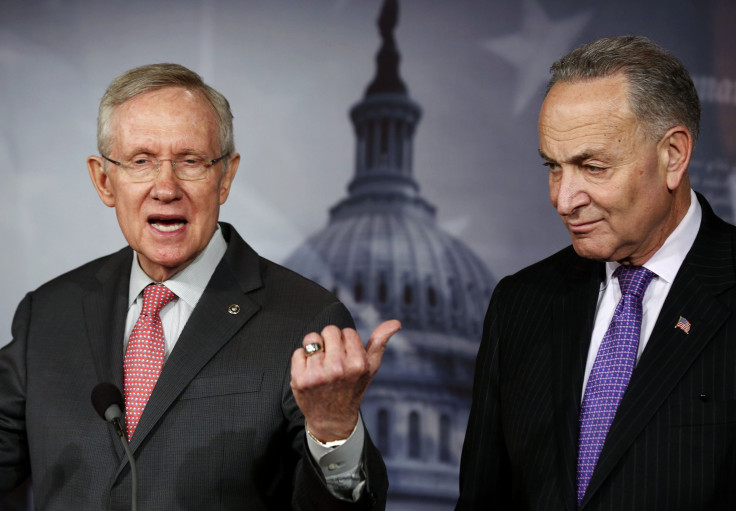Defense Spending Cuts 2013: Republican Plan Rejected 38 to 62; Democratic Bill Also Falls Short

A sequester will go into effect Friday, after a Republican measure to offset the automatic, across-the-board spending cuts associated with the budget act was rejected by Senate leadership Thursday. A Democratic proposal also fell short of the 60 votes needed.
The GOP's bill that would have given President Barack Obama the flexibility to implement the $85 billion in spending cuts was rebuffed 38 to 62. The measure was struck down by both Democrats and tea party members. On the other hand, the Democrats' proposal failed 51 to 49 and wasn't popular among Republicans, as expected.
The Democrat’s bill is a $110 billion alternative that includes a mixture of spending cuts and new tax revenue to be derived from taxing millionaires at a minimum 30 percent income tax rate. It will also cut agricultural subsidies and close corporate tax loopholes.
The sequester takes effect midnight on Friday.
Earlier that day, Senate Majority Leader Harry Reid, D-Nev., said Republicans in Congress were going after his party's proposal "because it goes after their special interests." He called the GOP's alternative "inflexible," adding that "not a single dollar of revenue, not a single tax loophole will be closed" in the Republican sequester plan.
At the same time, Senate Minority Leader Mitch McConnell, R-Ky., said his opponents weren't interested in solving spending in Washington, D.C. He also accused Obama and others of wanting the alternative plans to fail so that Republicans take the blame.
“It isn’t a plan at all,” McConnell said of the Democrats' alternative. “It’s a gimmick.”
Both Democrats and Republicans have agreed that the impact of sequestration will be harmful to the department of defense, in terms of military readiness, and to the economy, which is still in a sluggish, fragile recovery.
The next act in the budget drama? Obama is scheduled to hold a meeting with congressional leaders on Friday, after the sequester takes effect.
But political experts don't believe any solutions will come from that meeting.
“It is unlikely we are going to see a deal struck to remove the sequester,” Eric Patashnik a politics professor at the University of Virginia, said. “There is a lot of resignation among the White House and Congress that sequester will occur because there is no [other strategy] that is available. ”
© Copyright IBTimes 2024. All rights reserved.





















